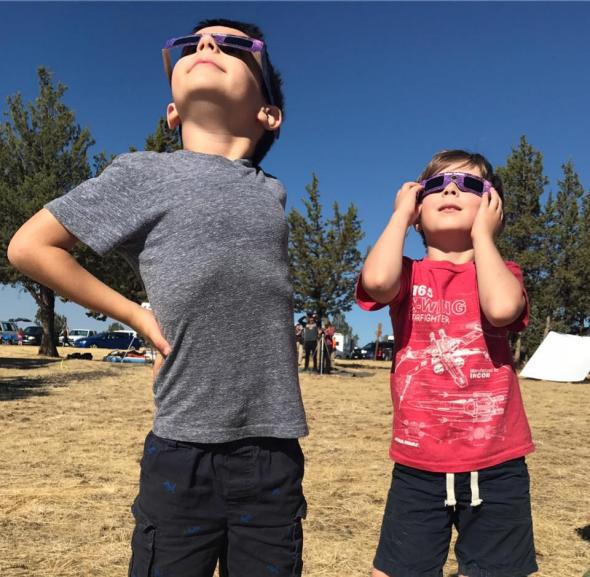We traveled 2,880 miles—from our home in New York’s Hudson Valley to the desert of central Oregon—to experience totality with our extended family. At 6 a.m., 11 of us ranging in age from 1 to 75 piled into three cars and caravanned 60 miles south from our Airbnb home in The Dalles. Traffic was surprisingly light, but whenever we passed a clearing off the highway, we saw dozens of parked cars and people milling about. The world was waiting. My husband said it felt like we were chasing the sun, trying to catch it before it collided with the moon.
The rest area we had picked as our watch point was full when we arrived at 7:30, but we parked behind a long line of cars on the roadside and snuck in. We didn’t expect much to happen until around 10:15, yet we started noticing changes at 9:45. The temperature dropped—we had to wrap grandma in a blanket because she couldn’t stop shivering—and the morning light started to transform. It was as if someone had found the sun’s dimmer switch. It was not the tinted light of dawn; it was the bright white light of midmorning, but there was too little of it. It felt wrong, like we had stepped inside a horror movie.
As we approached totality, the crowd fell increasingly out of sorts. It was difficult to process what was happening. Dogs started barking and howling. The outdoor lamps, operating on sensors, suddenly turned on. Totality arrived, and the crowd cheered and shrieked. The sun’s corona shivered and glittered behind the moon. I remember my 6-year-old marveling: “It’s absolutely beautiful.” I wasn’t sure if the experience would be rewarding enough to make up for the travel-related headaches, but it was magically surreal—worth every mile.
